Postpartum Anemia: Causes, Symptoms and Remedies
As a mother, if you are facing problems related to Postpartum Anemia then you must read about its Causes, Symptoms, and Remedies to keep yourself healthy and fit.
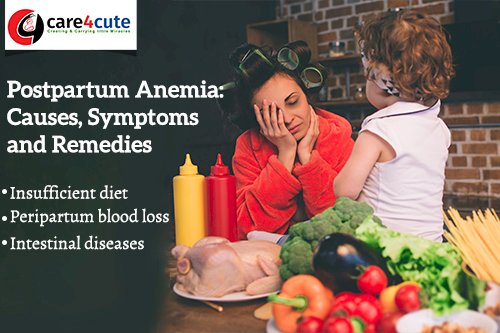
New mothers remains so devoted taking care of the baby that they forget to take care of themselves. Negligence of your health after childbirth can create several health issues, one of which is postpartum anemia. It is the most prevalent disease in the world, especially in developing countries, causing maternal morbidity.
Here, We will explain postpartum anemia, its causes, symptoms and the various remedial options.
Postpartum Anemia:-
Postpartum anemia is a chronic iron deficiency after delivery, when the hemoglobin levels remain less than 110 g/L at one week postpartum and less than 120 g/L at eight weeks postpartum.
Anemia develops in 3 stages:
1. First stage: At this stage, the iron levels in the bone marrow start to decrease, causing an overall deficiency in the iron content in the blood. No specific signs of anemia are perceived at this stage.
2. Second stage: This is the stage when the side-effects of anemia start to reveal. You start feeling more tired and may have headaches. The deficiency can be detected with a blood test. At this stage, the hemoglobin production starts getting affected.
3. Third stage: At the third stage, the hemoglobin levels reduce further, causing severe anemia. The symptoms include extreme tiredness and exhaustion, making the patient feel sick.
To know what reduces the hemoglobin levels is essential to avoid the condition.
Things that Causes Anemia after Pregnancy:-
Postpartum anemia could develop due to:
- Insufficient diet: Inadequate intake of iron before or during pregnancy can result in postpartum anemia. The iron requirement in times of pregnancy is 4.4 mg per day. Since you do not obtain enough iron from food alone, it is significant to take iron supplements during pregnancy and before conception. Significant blood loss during menstruation can also result in loss of iron before conception.
- Peripartum blood loss: Heavy blood loss during delivery (exceeding 500ml) can decrease the iron quantity of body and lead to anemia after delivery. The more the blood loss is, the greater is the risk of anemia in the mother .
- Intestinal diseases: In matters of intestinal disorders such as celiac disease, Crohn’s disease, and inflammatory bowel disease, the malabsorption of iron becomes a matter of great concern.
When the iron levels falls, you will experience specific changes in the body.
What Are The Signs And Symptoms Of Postpartum Anemia?
Here are the signs and symptoms indicating iron dearth in the body after childbirth:
- Feeling extremely exhausted and tired
- Pale skin
- Weakness
- Depression
- Feeling confused
- Reduced quality and quantity of breast milk, which is linked with low weight gain in babies
- Shortness of breath
- Lightheadedness or dizziness
- Rapid heartbeat
- Headaches
- Irritability
- Mood swings
- Decreased sex drive
- Loss of immunity
You may not be facing all these symptoms at a time, but if you feel any of the symptoms mentioned above uncontrollable, consult your doctor to avoid any kind of complication.
Hazards Associated with Postpartum Anemia
Anemia can create several risks to the mother if not diagnosed in time. Some of the risks are:
- Poor concentration
- Disability to complete everyday tasks due to tiredness
- Enhanced danger of premature birth or complications in subsequent pregnancies
- Accidental demise due to severe side effects such as execessive fatigue and dizziness
Women who face such circumstances are at a higher risk of developing postpartum anemia:
- Iron decrease before or during pregnancy
- Multiple pregnancies
- Pre-pregnancy BMI over 24
- Cesarean section
- Short recovery time between pregnancies
- Bleeding during pregnancy
- Premature or post-term delivery
- High blood loss during pregnancy
- Placenta Previa
- Hypertension
- Multiple births
- Low income
- Some of these changes also affect adversely the nourishment of your baby.
Does Anemia Affect Breastfeeding?
Yes. Anemia is associated with the inadequate milk syndrome, which diminish the duration of full breastfeeding and leads to weaning at an early age. Early weaning also leads to poor weight gain in infants . Around 22% of first-time mothers suffer from postpartum anemia with a hemoglobin level of less than 10 g/L.
Treatment of anemia soon after diagnosis can prevent breastfeeding problems.
How Is Postpartum Anemia Treated?
Treatment of postpartum anemia includes some changes in your diet and lifestyle. Here are some significant tips that can be followed:
- Take iron supplements to increase the iron levels in the blood. You can take tablets, capsules, or tonics as prescribed by the doctor.
- Eat iron-affluent foods including:
- Leafy Greens such as spinach
- Beans
- Lentils
- Apricots
- Pumpkin
- Tofu
- Cereal
- Brown Rice
- Asparagus
- Potato
- Squash
- Peas
- Iron-fortified bread
- Beef
- Oysters
- Chicken
- Strawberries
- Abstain tea intake, as it contains an ingredient called tannin, which reduces iron absorption in the body. Similarly, a lot of calcium intake can also decline the absorption of iron in the body.
- Eating foods abundant in vitamin C can help increase the iron absorption in the body. Fruits like orange and strawberry are good sources of vitamin C.
- Drinking more fluids helps you stay hydrated and improves your blood flow after childbirth. Fluid intake also helps stop blood clots and urinary tract infection. If iron supplements cause bloating, then fluids can help tackle it. Drink around two liters of fluid per day, as excess fluid intake can dilute the blood.
- Stool softeners can treat constipation, which is a side effect of anemia. You can also enhance fluid intake to treat constipation due to anemia.
- Get moderate rest, and avoid overexertion if you feel excessively tired and exhausted due to low iron levels.
- Infection risk enhances as anemia drops the immunity level of your body. In case you experience any signs of infection, see the doctor and take antibiotics if necessary.
- Follow up with the doctor if you are diagnosed with postpartum anemia. Get blood tests to help the doctor detect your condition and take necessary steps. If the iron level continues to fall, then the doctor may recommend iron injections, IV drip, or a blood transfusion.
If you notice any abnormal symptoms post-delivery, consult the doctor instantly. Consult to a nutritionist to help improve the diet and regain any lost nutrients after childbirth, to maintain iron levels in the body.










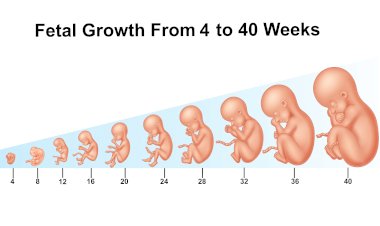















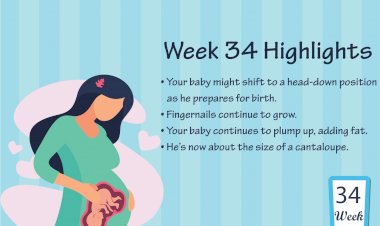



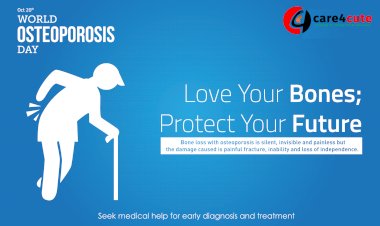

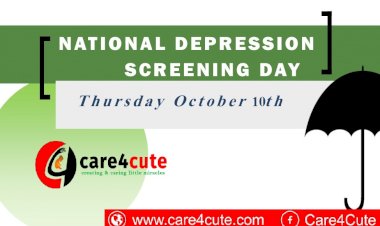
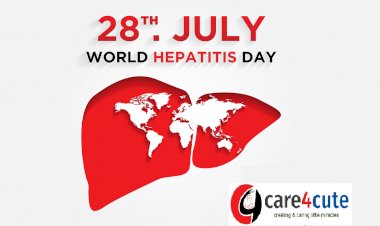

Comments (0)